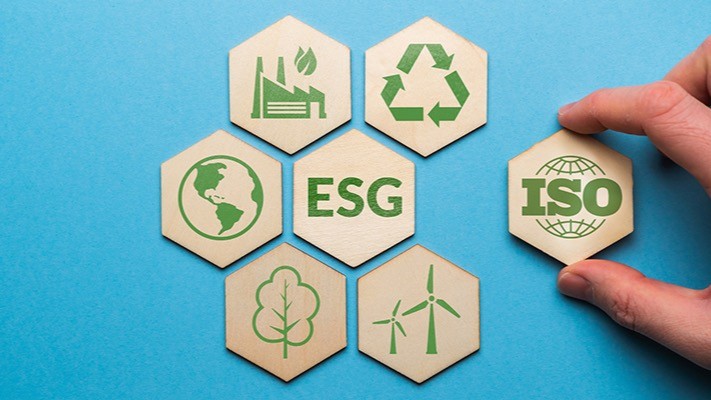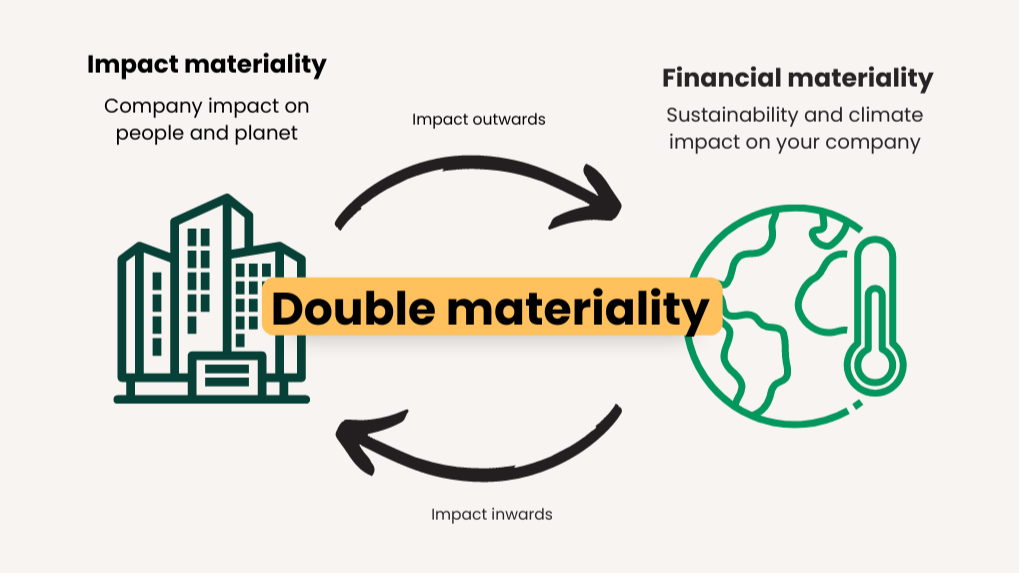As organizations face increasing pressure to operate responsibly and transparently, aligning with Environmental, Social, and Governance (ESG) principles has become essential. To meet these expectations, businesses are turning to globally recognized ISO standards that provide frameworks for sustainable, ethical, and responsible operations. Here’s a closer look at some of the key ISO standards that support ESG objectives,
1. ISO 14064 – Greenhouse Gas Emissions Quantification and Reporting
With growing awareness of climate change, ISO 14064 provides the necessary framework for organizations to measure, report, and verify their greenhouse gas (GHG) emissions. This standard helps companies track their carbon footprint and identify opportunities for reducing emissions, which is essential for climate related initiatives and compliance with international environmental agreements. ISO 14064 directly supports the “E” in ESG by addressing climate related risks and helping organizations make data driven decisions on emission reduction strategies. It also enhances transparency, allowing businesses to communicate their sustainability efforts credibly to investors, regulators, and consumers.
2. ISO 46001 – Water Efficiency Management Systems
ISO 46001 provides guidelines for establishing and managing water efficiency systems. It helps organizations monitor, measure, and improve water use, ensuring sustainable water consumption practices. This standard is especially relevant for industries where water is a critical resource. Water management is a growing concern globally, and ISO 46001 contributes to the “E” in ESG by enabling organizations to use water resources more efficiently, reducing water waste and supporting long term sustainability goals.
3. ISO 50001 – Energy Management Systems
Energy efficiency is at the heart of ISO 50001. This standard helps organizations systematically improve their energy performance by monitoring and managing energy consumption. The result? Reduced energy costs, lower greenhouse gas emissions, and improved sustainability performance. Energy management is a significant aspect of the “E” in ESG. Implementing ISO 50001 helps companies minimize their environmental impact while reducing operational costs. This makes the business more sustainable in the long run, both environmentally and financially, while also aligning with global climate goals.
4. ISO 14001 – Environmental Management Systems
ISO 14001 is a critical tool for any organization looking to reduce its environmental footprint. This standard helps companies develop and implement an environmental management system (EMS) that monitors environmental performance, improves resource efficiency, and reduces waste. By using ISO 14001, businesses demonstrate their commitment to sustainability, which not only enhances their reputation but also helps them to comply with regulatory requirements and meet the expectations of environmentally conscious stakeholders. Adopting ISO 14001 shows that an organization is serious about addressing environmental issues, a core component of the “E” in ESG. It enables businesses to set clear sustainability goals, track their progress, and continually improve their environmental performance, positioning them as responsible corporate citizens.
5. ISO 26000 – Social Responsibility Guidance
Unlike other ISO standards, ISO 26000 isn’t designed for certification but serves as a comprehensive guide on social responsibility. It covers critical topics like labor practices, fair trade, human rights, and community involvement. Companies that follow ISO 26000 can ensure that their operations are not only legally compliant but also ethically sound, benefiting the communities in which they operate. This standard is closely aligned with the “S” in ESG, offering a pathway for businesses to positively impact society. By adopting ISO 26000, organizations demonstrate their dedication to ethical behavior, respect for human rights, and fair labor practices factors that resonate with both employees and consumers.
6. ISO 45001 – Occupational Health and Safety
Workplace safety is paramount, and ISO 45001 provides the framework for businesses to establish, implement, and maintain a robust occupational health and safety (OH&S) management system. This standard not only focuses on reducing accidents and work-related injuries but also promotes a culture of health and safety across the entire organization. Safe workplace is a fundamental part of the “S” in ESG. By ensuring employee well being, companies can increase productivity, reduce downtime, and foster a positive organizational culture. ISO 45001 also signals to stakeholders that an organization values its workforce, which can enhance reputation and employee retention.
7. ISO 45003 – Psychosocial Health & Safety Management
ISO 45003 addresses the mental health aspects of workplace safety, focusing on managing work related stress, depression, and anxiety. According to recent HSE reports, mental health conditions have been a leading cause of work related ill health and lost working days in the last four years, making this a critical area for organizations to address.This standard supports the “S” in ESG by promoting mental well-being in the workplace, recognizing that psychological safety is as important as physical safety for a healthy, productive workforce.
8. ISO 37001 – Anti Bribery Management Systems
ISO 37001 is designed to help organizations prevent, detect, and respond to bribery and corruption risks. This standard outlines best practices for establishing anti bribery policies, implementing controls, and encouraging a culture of transparency and accountability. Organizations that adopt ISO 37001 demonstrate their commitment to ethical governance. Governance is a crucial pillar of ESG, and ISO 37001 supports the “G” by ensuring that businesses maintain integrity and transparency. By reducing the risk of corruption, companies can build trust with investors, customers, and employees, creating a more robust and ethical business environment.
9. ISO 31000 – Risk Management Guidelines
Risk is inherent in every business, and ISO 31000 offers a clear framework for managing a wide range of risks, including those related to environmental, social, and governance factors. This standard helps organizations identify potential risks, assess their impact, and implement strategies to mitigate them. It ensures that ESG risks are integrated into the broader risk management process, helping companies remain resilient and adaptive in the face of challenges. Risk management is a vital aspect of the “G” in ESG, ensuring that businesses are not only reactive but also proactive in addressing potential ESG related challenges. By following ISO 31000, organizations can better navigate environmental and social risks, safeguard their reputation, and build long term sustainability.
10. ISO 9000 – Quality Management Systems
ISO 9000 focuses on principles of quality management, such as customer focus, leadership, and continual improvement. It ensures that organizations can consistently deliver high quality products and services that meet regulatory and customer requirements. ISO 9000 impacts both the “S” and “G” in ESG by ensuring quality, customer satisfaction, and strong leadership within an organization. High standards of quality management support social responsibility and good governance practices, driving organizational excellence and stakeholder trust.
11. ISO 27001 – Information Security Management Systems
ISO 27001 provides a framework for organizations to establish, implement, maintain, and continually improve systems that ensure the confidentiality, integrity, and availability of sensitive information. This standard helps protect data in an increasingly digital world and ensures compliance with data protection regulations. ISO 27001 supports the “G” in ESG by improving data security, protecting organizational and stakeholder information, and ensuring regulatory compliance, which fosters greater trust and transparency.
In a world where ESG concerns are central to business success and sustainability, ISO standards provide an effective framework for organizations to demonstrate their commitment to responsible practices. These standards offer a consistent, measurable, and credible approach to addressing environmental, social, and governance issues. While there are challenges in implementing ISO standards, the long-term benefits are clear. They can improve transparency, mitigate risks, attract investment, and enhance relationships with customers, employees, and other stakeholders. In a world that increasingly values ethics, sustainability, and responsibility, ISO standards are a valuable tool for organizations looking to build a better, more sustainable future.





Setting up cybersecurity software early in your business can protect valuable company and customer data. A great place to start is purchasing antivirus software, which guards computers and networks against viruses and other malicious attacks. You may also consider purchasing a business VPN to ensure only authorized users can access your network.